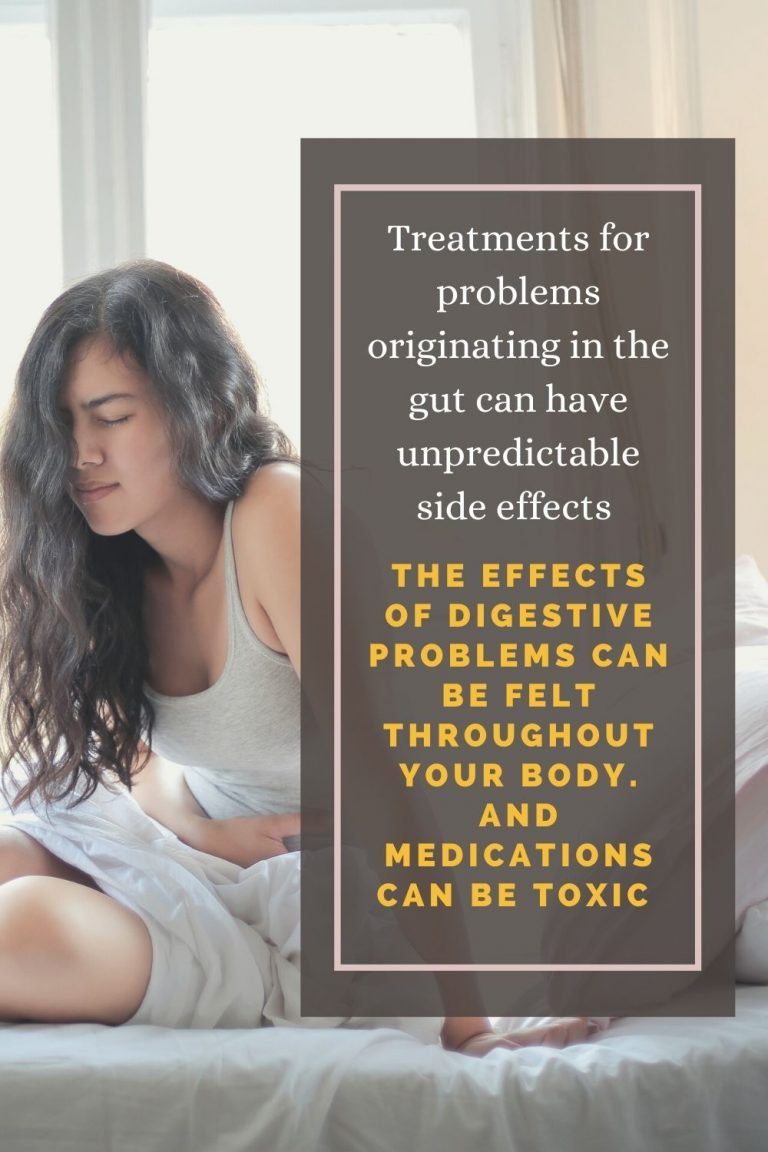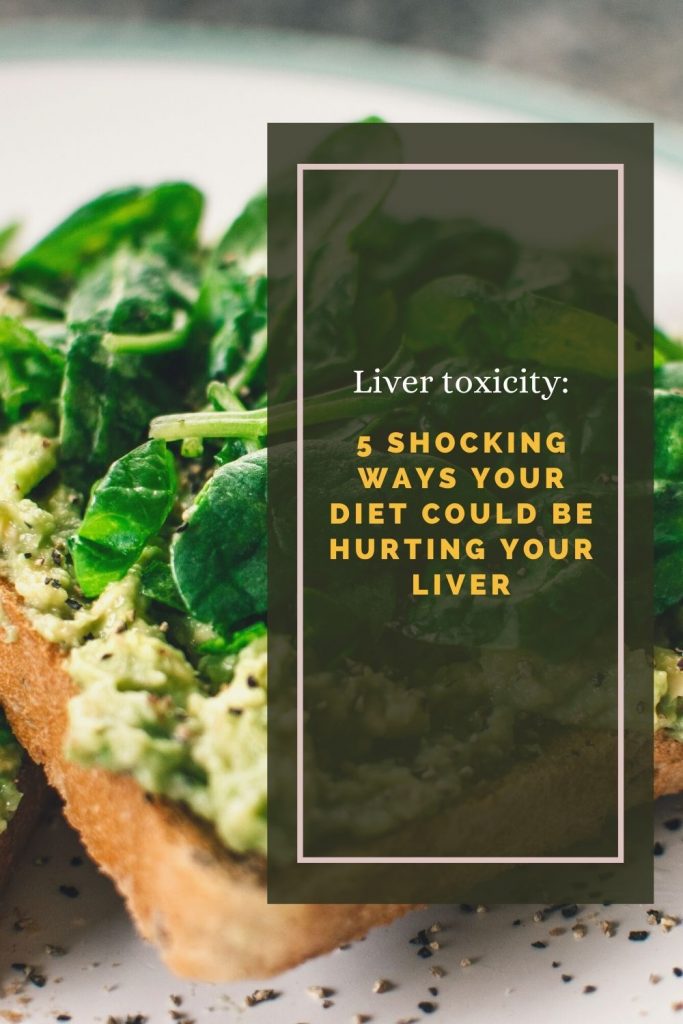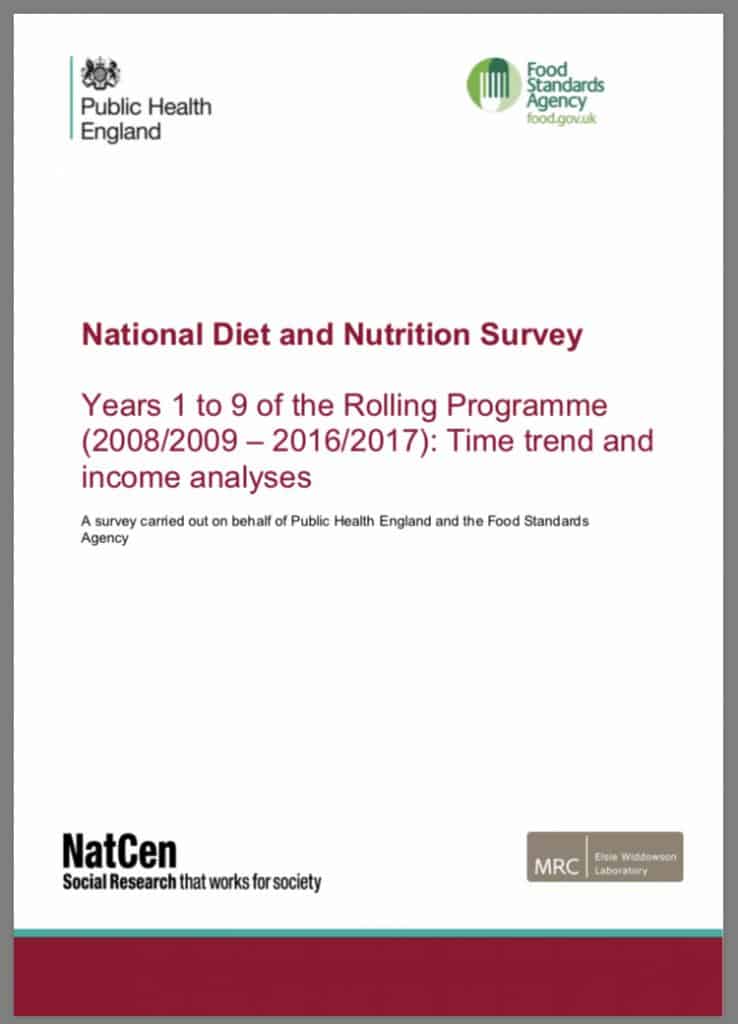Could a low-fat, high-carb, low cholesterol diet be causing liver toxicity?
The answer is yes. But some of the reasons a low-fat, high-carb diet results in liver toxicity might surprise you.
4.5 million adults.
According to the CDC, that’s the number of adults in the USA diagnosed with liver disease in 2018.
Why should you worry about your liver's health?
Chronic liver disease is rising worldwide in line with the increasing prevalence of metabolic disease. Metabolic syndrome is now at pandemic levels in many countries. More than a third of adults meet the criteria for metabolic syndrome in the USA, but your risk increases with age and differs between ethnicities and socioeconomic groups.
On the other hand, infectious causes of chronic liver disease, like viral hepatitis, are falling in many countries. Meanwhile, other reasons for liver disease related to diet and lifestyle choices, like metabolic syndrome, alcohol consumption, and injection drug use, are increasing. Autoimmune hepatitis is also on the rise in New Zealand and Japan.
Here are some worrying statistics from the British Liver Trust in the UK:
- Since 1970, liver disease deaths have increased by 400% in the UK,
- Liver disease is the leading cause of death in 35-49-year-old British adults,
- Liver disease is the third leading cause of premature death in the UK,
- 90% of liver disease is preventable,
- But by the time three-quarters of people are diagnosed, they have end-stage liver failure, which can’t be reversed.
- 63% of adults in the UK are categorised as obese or overweight
- 1 in 3 adults have early-stage non-alcoholic fatty liver disease,
- Experts predict that over the next decade, NAFLD will surpass alcohol to become the leading cause of end-stage liver disease and liver transplantation,
- 1 in 20 UK adults has non-alcoholic steatohepatitis (NASH). NASH is considered a more advanced form of NAFLD where your liver already has chronic hepatitis with some scarring. It can develop into advanced liver fibrosis, cirrhosis, liver failure or liver cancer.
Non-alcoholic fatty liver disease (NAFLD) is the only underlying cause of liver disease that’s consistently climbed in the USA over the last 30 years. But I’ll let you into a secret: NAFLD responds very well to diet and lifestyle changes. Clinical trials reveal that if you can lose even 5-10% of your body weight, you should be able to stop or even reverse this liver damage. There are no medications that can accomplish this.
So a well-planned low carbohydrate diet can play a role in reversing liver damage through weight loss. But why might a low-fat diet increase your risk of hepatotoxicity? Hepatotoxicity means liver toxicity.
No. 1: How eating fat helps reduce liver toxicity
You might already know that many toxins are fat-soluble rather than water-soluble.
And that your liver is a pivotal organ for eliminating toxins. As part of the elimination process, many of these are bound to compounds like glutathione, glycine, methyl, gluconate and other groups that aid in detoxifying the body.
Your liver then exports these bound toxins into your bloodstream or bile. If the attached (or conjugated) toxins are released into your bloodstream, it’s because other organs will help to remove them from your body. The other detoxification organs are the kidneys, skin and lungs.
On the other hand, the conjugated toxins may instead be transported into your bile for elimination. Bile carries these toxins, which are destined to be exported into your gut and flushed down the loo. Bile is stored in your gallbladder.
But your gallbladder will only contract to release toxin-laden bile when your gut senses there’s a fatty meal being digested and entering your small intestine.
No fat; no need for your gallbladder to contract.
The primary purpose for bile production and release is, after all, to ensure you can digest and absorb fat-soluble nutrients like essential and non-essential fats, cholesterol, and fat-soluble vitamins. It’s worth pointing out that in nutrition, the word “essential” means that a substance must be consumed in your diet. Non-essential nutrients are still essential for life and health. But you can make them inside your body from other nutrients.
What happens if your gallbladder doesn't function properly?
If your gallbladder doesn’t contract, it doesn’t release the bile stored in it. But your liver will continue to make bile and transport it into your gallbladder regardless. Then your gallbladder will start to resorb water from your bile to prevent it from swelling to the size of a 9-month pregnant uterus.
This leads to biliary stasis. And over time, this will result in gallstones forming. In addition, several studies of low-fat diets reveal they increase gallstone formation.
That’s the most apparent reason that low-fat diets can impair toxin elimination.
No 2: This rampant food intolerance can increase liver toxicity. Here's how
Your gallbladder might have delayed contraction if you have untreated coeliac disease (gluten sensitivity). And by “delayed”, I mean by over 2 hours. Your fatty meal may have passed through your small intestine and have reached your colon by this time. As a result, your bile can’t catch up.
Untreated celiac disease (in the UK, we spell it coeliac disease) interferes with your release of a hormone called cholecystokinin (CCK). Cholecystokinin signals your gallbladder to contract. So low CCK and delayed CCK release result in a gallbladder that doesn’t contract.
What is celiac disease?
Celiac disease is one type of intolerance to gluten. Gluten is an inflammatory protein found in grains like wheat, barley, rye, spelt and other ancient wheat types like spelt, Kamut and einkorn. People suffering from celiac disease have a severe inflammatory response to foods containing these ingredients.
Why would you have untreated celiac disease?
It could be because nobody tested you for coeliac disease as they didn’t recognise your symptoms.
Or you were tested, and the result was a false positive. So your coeliac disease was missed, and you were falsely reassured that you could continue eating gluten.
What if you have a positive coeliac test, but nobody gave you dietary advice or told you it was necessary to avoid gluten? Then you’d keep on consuming gluten, of course.
In the fourth scenario, you were adequately diagnosed and advised to follow a strict gluten-free diet, but you ignored that advice. Which happens more often than you’d think. Especially if you have more than just coeliac disease going on. If you have coeliac disease and other food intolerances, overgrowth of the wrong gut microbes or microbes overgrowing in the wrong places, you might notice that a gluten-free diet doesn’t make you feel any better. Because there’s a bunch of other stuff you should be doing that you aren’t aware of. If you’re not feeling better, there’s little motivation to continue restricting your diet.
So a low-fat, high-carb diet when you have untreated or unresponsive coeliac disease is even more likely to result in you being unable to eliminate toxins. In addition, non-celiac gluten sensitivity may cause some of the same problems.
No 3: How a low-fat diet can increase oxalate toxicity and liver toxicity
If you have a poorly functioning gallbladder and poor bile salt release for any reason, you’ll struggle to digest and absorb fat.
This means that fat will stay in your gut instead of being absorbed. And fat in your intestines will combine with dietary calcium. This binds up the calcium. In turn, calcium can’t perform any other functions in your intestines or be absorbed.
This leads to the third unexpected reason why a low-fat, high-carb diet can impair toxin elimination.
One of the things that calcium does in your gut is bind to oxalates. I’ve mentioned oxalates before a few times. But I’ll be writing about them more in the future as I’m sure high oxalates interact and can magnify the effects of other toxins through toxicant-induced loss of tolerance or TILT, which I’ve written about here. So if you’ve never heard of TILT before, I’d recommend you read about it because it’ll open your eyes.
Oxalates are awful little toxins that wreak metabolic havoc and cause excruciating pain. They can screw your health up royally. And oxalates are common constituents of your diet found in plant foods. Some plants are much higher in oxalates than others.
Many high oxalate plants are low in carbohydrates. In fact, some of the worst offenders are often considered to be part of any healthy, whole food diet that includes a wide range of plants. For example, spinach, rhubarb, beetroot greens, sweet potatoes, and swiss chard are extremely high in oxalates, along with soy, legumes, and many nuts and seeds. So following a low carbohydrate diet is no guarantee that your diet will be lower in oxalates.
Calcium in your gut can bind oxalates and reduce their absorption. So if calcium is attached to something else (fat), it’s unavailable to escort oxalates out of your gut. And that means that you’ll absorb more oxalates from your diet. So you can end up with more oxalate toxicity because of fat malabsorption.
As a quick reminder, fat malabsorption happens because bile can’t reach your small intestine. And this can be because your gallbladder isn’t contracting correctly (biliary stasis). You might even have a history of gallstones. Or you may have had your gallbladder removed. This is usually a result of gallstones. While the underlying cause for your poor gallbladder function could be related to:
- a low-fat, high-carb diet,
- a very low calorie, low-fat diet,
- gluten sensitivity, often in the context of celiac disease.
But we’re not done with oxalates yet.
Oxalates can even affect detoxification pathways in other organs
You can eliminate oxalates through your gut (via bile), kidneys (in urine), and skin. And you can even attempt to eliminate oxalates through your respiratory tract, which doesn’t tend to work out as well.
Of course, if your bile is all backed up, it’s no longer a good route for oxalate elimination. This places more pressure on your other elimination organs. Remember that you also have an increased oxalate load from increased absorption resulting from fat malabsorption.
Diverting more oxalate through your kidneys leads to all sorts of kidney issues. Particularly urinary frequency and interstitial cystitis symptoms with burning, cloudy urine and even blood in your urine.
But an increased risk of kidney stones is one of the most significant issues with oxalate elimination in the urine. Oxalate toxicity may be why coeliac disease is linked with kidney stones.
But maybe we should also start investigating relationships going in the opposite direction: if you have kidney stones, should you be eating gluten? And should you gradually wean yourself off oxalates as well?
No 4: The fourth reason a low-fat diet high in oxalates can impair liver detoxification relates to cellular toxicity
Oxalates are nasty cellular toxins that cause cellular dysfunction. And this also impairs your ability to detoxify and remove toxins.
The worse your cellular health, the harder it is for your cells to perform their essential functions. So any toxicity (including oxalate, medication and heavy metal toxicity) can hamper your ability to remove those same toxins from your body. Merely because your cell function becomes compromised.
The toxicity effect can be severe enough to translate into reduced liver and renal function that you can pick up on blood tests. And you can develop jaundice that is visible in the whites of your eyes. Of course, organ pain can also occur like loin pain or pain and tenderness in your liver region.
No 5: A diet high in carbohydrates can increase your toxic burden. Let me explain how
Finally (at least for now), a low-fat, high-carbohydrate diet tends to be very high in fermentable carbohydrates. And typical carbohydrate sources tend to be monotonous. Large amounts of dietary fibre in wheat, rye and oats prepared in 50 different ways is not a varied diet. Sorry, not sorry.
Finally (at least for now), a low-fat, high-carbohydrate diet tends to be very high in fermentable carbohydrates. And typical carbohydrate sources tend to be monotonous. Large amounts of dietary fibre in wheat, rye and oats prepared in 50 different ways is not a varied diet. Sorry, not sorry.
High carbohydrates diets, even those full of “heart-healthy whole grains”, are high in sugars and starch. Starch is another word for sugar (because that’s what it’s broken down into inside your gut). While fruits are a rich dietary source of sugars.
And when it comes to your gut microbes, any source of fermentable carbohydrates is a source of food. If you are fortunate enough to have a marvellous gut microbiome, then good for you. But you are probably very healthy and not even reading this post.
So if you’re one of the many people with a dysbiotic gut, a high carbohydrate diet may, perhaps counterintuitively, worsen this situation. And gut microbes can also produce yet more toxins that you can absorb from your gut, even in the absence of bile salts. There are too many specific microbial toxins to mention. But I like to bring up auto-brewery syndrome because it’s real. And auto-brewery syndrome is precisely what it sounds like. Your gut microbes ferment the carbohydrates in your diet into alcohol.
In fact, bile salts are one of the ways your body can protect itself from gut infections with pathogenic microbes. Because another function of bile is to kill pathogenic microbes that might enter your digestive tract when eating.
Conversely, a healthy gut microbiome can help with detoxification processes, and we actually outsource how we handle some of our toxins to our microbes. In the case of female hormones, this is called the estrobalome.
But doesn't a high-carbohydrate, high fibre diet improve your microbiome?
You might think that a high carbohydrate, low-fat diet would automatically lead to a better microbiome. But that doesn’t appear to be the case. It seems to be very individual. Some people eating a high carb diet do have a healthy gut microbiome.
Meanwhile, many other people on a high carbohydrate, plant-based diet have a very unhealthy microbiome. The reasons for this are manifold. But include pesticide ingestion and GMO crops (which may be roundup ready to produce BT toxin — a natural antimicrobial agent). Pesticides often act as broad-spectrum antimicrobials affecting both fungal and bacterial ratios. And they can be more harmful to more fragile microbes than to more formidable ones. But, as you’ve probably already guessed, formidable microbes, like many pathogenic Clostridial species, are often more pathogenic and aggressive.
Pesticides, food preservatives and other food additives may be mistaken by microbes for antimicrobial substances being produced by other microbes. This can make microbes assume defensive and aggressive strategies. As a result, toxin-producing microbes may switch on their production of both antibiotics and antibiotic resistance compounds, culminating in an all-out war between different microbial species in your gut. Again, the most likely microbes to be suppressed are the friendliest and most vulnerable ones. Much of the research on altered microbial balance following pesticide use features glyphosate. So you can develop imbalances skewed towards more aggressive species and less overall diversity.
As I mentioned above, simply feeding your gut microbiome lots of fermentable carbohydrates can lead to the overgrowth of certain species, some of which may be toxin-producing. And can this can also lead to increased antimicrobial compounds with more pathogenic microbes jostling out the friendlier ones and taking over. This isn’t inevitable on a diet rich in fermentable carbohydrates. But it can happen.
I couldn’t find any studies of stool analyses on people eating a carnivore diet. But occasional anecdotal reports, like this one, suggest that some people’s microbial diversity improves.
No. 6: Can treatments for the complications of poor digestive health cause liver toxicity?

The medications you might be taking to combat symptoms like pain, indigestion, bloating, and IBS triggered by all of the above can deplete your nutrients, make your gut leaky, and disrupt your gut microbiome. While the resulting chronic inflammation can impact other organs outside your digestive tract.
The effects of digestive problems can be felt throughout your body
An inflamed and damaged gut is stressful. This drives your body to release inflammatory cytokines and stress hormones, like cortisol and adrenaline (epinephrine). While experiencing a stress response, you’ll feel more anxious and irritable.
The best current evidence suggests that our reactions to being injured or ill cause mood changes, fatigue, poor sleep, headaches, aches and pains and other symptoms. This is called sickness behaviour. However, when you attend your doctor with these symptoms, you’ll be diagnosed with depression. This is because very few doctors have heard of the inflammatory cytokine model of depression, where depression is driven by a chronic inflammatory immune response where your body is defending itself against some threat.
Medications commonly prescribed for depression, anxiety, pain, and poor sleep can also be hepatotoxic and can have gut symptoms as a common side effect.
Some medications are also toxic to your organs of detoxification. For example, even simple paracetamol (acetaminophen in the USA) can cause drug-induced liver injury. This is called acetaminophen-induced hepatotoxicity. While non-steroidal anti-inflammatories like ibuprofen can damage your kidneys. So long term use of even common over-the-counter medications can have negative consequences for your health and reduce your ability to detox further by causing drug-induced liver damage.
The end result will be increased chronic inflammation, metabolic damage, malnutrition, and reduced capacity to eliminate toxins. And as a result, you may develop symptoms of chronic fatigue and inflammation, psychiatric illness, and metabolic syndrome. Not to mention more food intolerances.
Treatments for skin problems can harm your liver too
Many skin diseases, including acne, rosacea, eczema, and psoriasis, happen due to an inflamed gut. In fact, my own experiences healing chronic acne led me to discover that diet and nutrition are pivotal in determining the health of your skin. I’ve written about my acne healing journey here and shared tips on cutting out chocolate, too.
However, if you suffer from skin issues like I did, you already might have been offered oral and topical medications. These can include:
- moisturisers,
- steroids (which can cause several forms of liver injury),
- antibiotics (a common cause of drug-induced liver injury),
- the oral contraceptive pill (which has drug-induced liver injury listed amongst its side effects),
- Roaccutane – isotretinoin (a powerful, liver-toxic drug),
- and methotrexate (another medication that can cause severe liver disease).
And you may spend a lot of money on makeup and skincare products to cover up skin lesions and scars. But unfortunately, you can absorb chemicals well through your skin, and some commonly used skincare products also damage your liver.
So there are many ways that you can end up increasing your use of medications and cosmetics due to following an inappropriate diet. They can contribute to toxin and drug-induced liver disease.
This outcome isn’t inevitable for everyone eating a high carbohydrate diet. But it does happen to many people.
So if you’ve tried a high carbohydrate diet but found that you ended up less healthy yet stuck eating low fat because your gallbladder and liver have stopped functioning correctly, this might be why.




I appreciate your taking the initiative to begin this.